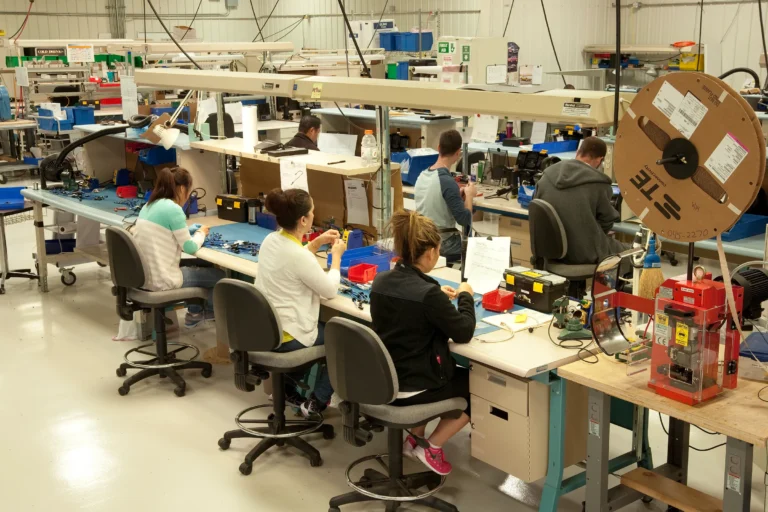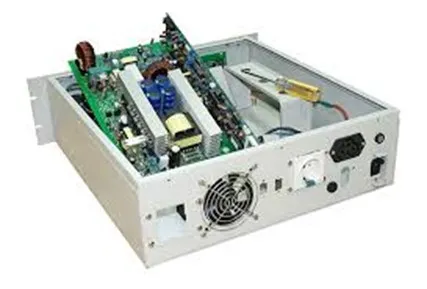
Working Hard at Listening

One of the hardest things to do is to listen. Most of us are wired to talk and do it quite well. We are quick to offer our ideas, our solutions, our way to do this or that. Although God blessed us with two ears and we hear just fine, most of us really struggle to listen. And by “listen” I mean to take the time to hear and really understand the ideas and concerns of others.
It turns out that organizations are no different than people, which should come as no surprise since organizations are nothing more than a group of people with a common purpose. The irony is that for an organization to be successful in today’s hyper-competitive world it must really understand how well it is serving its customers. It needs to know what it is doing right and what it is doing wrong; what challenges its customers face and how it might better help its customers overcome these challenges. In short, an organization that can’t listen doesn’t have much of a future.
At RESCO we really get the importance of listening. We work hard to listen to our suppliers, to our team members, and, of course, to our customers. We collect data throughout the year from our customers, like performance reports, quality reports, and other types of formal feedback. Through our quality system we collect all kinds of data on our performance…acceptance rates, on-time delivery rates, in-house rework rates, and on and on. We have even created a mechanism to log issues that our customers report that might not be captured in our quality metrics, like emailed complaints or suggestions. But perhaps the most plentiful source of feedback that we have comes from our annual customer survey.
If you are reading this blog, there is a good chance that you have responded to one of our annual surveys and, if you have, I thank you. We gather more useful and actionable information from this survey than from any other single source. Perhaps the survey is so useful because it measures our customers’ perception of how we are performing. Statistics are statics but perception is reality…and I really mean this. How our customers perceive we are performing is how we are performing.
Just before Thanksgiving we wrapped-up our 2017 customer survey. Over the years, we have come up with different ways to score the results. It seems that everybody, myself included, likes to distill all the information we gather from the survey into a single number that somehow is supposed to tell us how well we are doing. For the record, this year’s number was 4.03 on a scale of 5.00. Not a bad result but we were disappointed since it was lower than last year’s record score of 4.45. The good news is that we have opportunities to improve.

In reality the score I mentioned above doesn’t tell us much. It’s the details behind the score that can help us keep getting better. For example, the two big takeaways from this year’s survey were:
- We need be faster in getting quotes to our customers, and
- We must reduce our lead-time.
And we are taking action!
We are in the process of re-working our quote process. Up to now all our quotes followed the same process, a process based around very complex assemblies. As it turns out, well over half the assemblies we quote are not that complex and can go through a more simplified process. So that is what we are doing. In the next few weeks we will begin quoting using a two track process; a fast track for simpler assemblies where quotes are needed quickly and a more detailed process for everything else.
To reduce our lead-times (which aren’t poor but could be better) is a heavier lift. Our challenge here is creating more capacity and flexibility in our Acuna, Mexico facility. In a way, we have been a victim of our own success. Our growth over the last several years has brought us ever closer to the capacity of this facility. To remedy this, we are in the process of finding and moving into a larger facility. As you might imagine, this is no small undertaking but one that is necessary both to support our continued growth and to shorten our lead times.
So you can see that listening is important; important if we are to continue to improve our service levels and important to support our growth. Although it might not come naturally to many of us as individuals, it is engrained in the culture of RESCO to listen. And I promise that we will keep doing just that…listening.
About the Author

David Copenhaver is President of RESCO Electronics, a Baltimore based manufacturer electronic assemblies and value added reseller of auto ID equipment to original equipment manufacturers. Before joining RESCO in 2003, David was the Senior Vice President of Operations and member of the Board of Directors for US Office Products, a publicly traded distributor of office products that is now part of Staples. Beginning in 1989, David co-owned and managed The Smith-Wilson Co., an Orlando based distributor of office products that was sold to US Office Products in 1996.
David has a Bachelor of Science in Electrical Engineering and a Masters in Business Administration both from the Univ
You May Like

Preferred Suppliers Programs
We are all looking for ways to improve our bottom line, and sometimes that takes some creativity. In our earlier blogs we discussed how procurement professionals have much to offer in helping companies achieve their cost saving objectives by doing more with less. An increasing trend to help reach these goals

Transitioning to Contract Manufacturing
In today’s challenging manufacturing environment, OEM’s are always looking for opportunities to reduce costs. Recently the RESCO team worked on a new project with a large medical OEM to transition production of a critical high-voltage assembly from their plant to RESCO’s facility in Ciudad Acuna Mexico. As with any outsourcing project,

Net Big Savings by Outsourcing HLAs
In today’s competitive market, every company is looking for a cost advantage. Sometimes that edge comes from working with your contract manufacturing partners to develop a lower cost design, other times it comes from finding off shore sources for sub-assemblies, or perhaps it comes from implementing cost saving inventory replenishment